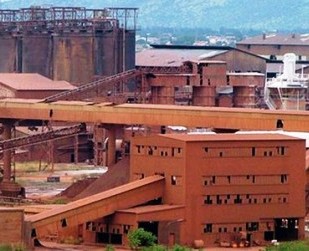 (Podgorica, 4 July 2013) – The suggested budgetary revision submitted to Montenegro’s Assembly demonstrates that the government has decided to not only settle KAP’s existing debts with new taxes on citizens, but that it also plans new concessions to the Russian tycoon.
(Podgorica, 4 July 2013) – The suggested budgetary revision submitted to Montenegro’s Assembly demonstrates that the government has decided to not only settle KAP’s existing debts with new taxes on citizens, but that it also plans new concessions to the Russian tycoon.
The government is thus proposing that in addition to settling the debts between the KAP, the Pljevlja Coal Mine, EPCG, Distribution and the State of Montenegro, a new mid-term agreement on the provision of electricity at subsidized prices should be concluded between the EPCG, Montenegro Bonus, and KAP.
According to the Government’s plans, the new agreement on the supply of KAP with electricity would be concluded on a medium term basis of six years, during which time the factory would be supplied with electricity at below market price. This effectively means that the enterprise would continue to be supplied with new state subsidies for the Russian owners.
In so far as the state concludes such an agreement for the provision of electricity, this will be a direct violation of the SAA signed between Montenegro and the EU. The SAA bars “any state assistance that hinders competition or threatens to hinder competition by favouring certain enterprises or goods.” Such a practice demonstrates the degree to which the Government if Milo Djukanovic is dedicated to EU integration, which following the now infamous theft of electricity from the EU system, represents yet another slap in the face of the European community (who’s membership we’re formally seeking).
Similarly, it’s not known in what way the Government plans to cover the difference in the price between the market and the ‘favourable prices’ promised to KAP. There is still not enough information about the amount of the new ‘favourable price’ and the total amount of electricity subsidies the government will provide.
Until now the most common practice has meant that the weight of subsidies has always fallen on citizens, whether through the direct payment of the KAP’s electricity bills or by imposing a higher electricity price on households.
Furthermore, the announcement of this wrongheaded, but very consciously crafted government policy, will have a directly negative impact on Montenegro’s citizens. It is being adopted at a time when new electricity price hikes are being planned, which will further burden already impoverished Montenegrin households. The more favourable electricity price for KAP, and the newly hiked price for all others, is simply the continuation of a practice that the government has been employing for years in order to aid the Russian tycoons who bought the KAP to extract the highest profit at the lowest cost.
At the moment when the KAP has a mid-year unpaid electricity debt of €60-million, and when as a result of gaps in the budget created by KAP a VAT-hike is being introduced, in addition to a crisis tax on earnings and a “euro for euro” tax, and when government guarantees for loans taken out by the Russian tycoon are coming due, the government of Montenegro has decided to reward the KAP’s owners with new electricity subsidies.
This is a scenario where there is no doubt as to whether we’re dealing with corruption or ignorance, given the amount of times that we’ve had an opportunity to see how the Djukanovic government has handled the situation. With the extension of new electricity subsidies to the KAP’s Russian owners, Djukanovic is sending a clear message to the EU that Montenegro doesn’t want to play by the rules, but that the profit motives of individuals are still wanting in relation to EU practice and the European future of Montenegro. Djukanovic is also sending a message to Montenegro’s citizens that he can bring this country into further economic decline without any consequences, and that in the future we can count on new impositions and taxes that will finance the enrichment of domestic and foreign tycoons.



